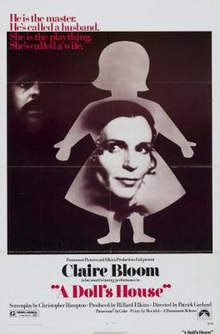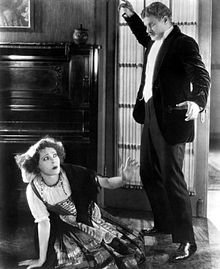Editor’s Note: The 1879 European play “A Doll’s House” (by Norway’s Henrik Ibsen) became famous for being a controversial pre-feminist critique of the demeaning restrictions placed on women within the bonds of traditional marriage. But the author of the following essay does not focus on the feminist angle of the play, the fact that Nora’s financial forgery saved her ungrateful husband’s life, or that his treatment of her inspires her to walk away from him and their children. Instead, Ms. Sanchez argues that having more honest communication from the beginning of their marriage might have worked better for both husband and wife.
By Madison Sanchez
Based on the plot of the play, “A Doll’s House”, I believe that the title of act three should be “Honesty.” I think this because throughout act three, Nora was trying to prevent her husband, Torvald from finding out about a crime she committed, and a lie she told, which is one of the main plot points of the play. Instead of confessing the truth to him, she decided to be dishonest and secretive, which made matters worse.
This one lie uncovered many other hidden truths about Torvald and Nora’s marriage. For example, in the beginning of act three, Nora said “ No, no, no!-don’t take me in. I want to go upstairs again; I don’t want to leave so early.” This quote exposes how Nora tried to stay at the Tarantella so Torvald wouldn’t be home to open the letter box.
Nora was so desperate to keep her secrets, that when physical evidence points the finger at her, she goes as far as blaming her own children for something she did just to cover herself.
Later in the play, Torvald exclaims “All these eight years— she who was my joy and pride—a hypocrite, a liar—worse, worse—a criminal! The unutterable ugliness of it all!—For shame! For shame!” This quote explains how Torvald felt after he found out about what Nora did. He is understandably very upset and angry after discovering Nora’s crime, and looks at her very differently.
The play also uncovers deep feelings of resentment Nora has been hiding or ignoring. “ But our home has been nothing but a playroom,” she says. “I have been your doll-wife, just as at home I was papa’s doll-child; and here the children have been my dolls. I thought it great fun when you played with me, just as they thought it great fun when I played with them . That is what our marriage has been, Torvald.”
This quote reveals how Torvald treated Nora throughout their marriage and how she really felt about it. The lie that Nora told ultimately exposed many other sad truths about her marriage, like how she was treated and how seriously Torvald did or did not not take her. The plot of this play thus works to explain how honesty can change future events, and how dishonesty can create lingering problems.

